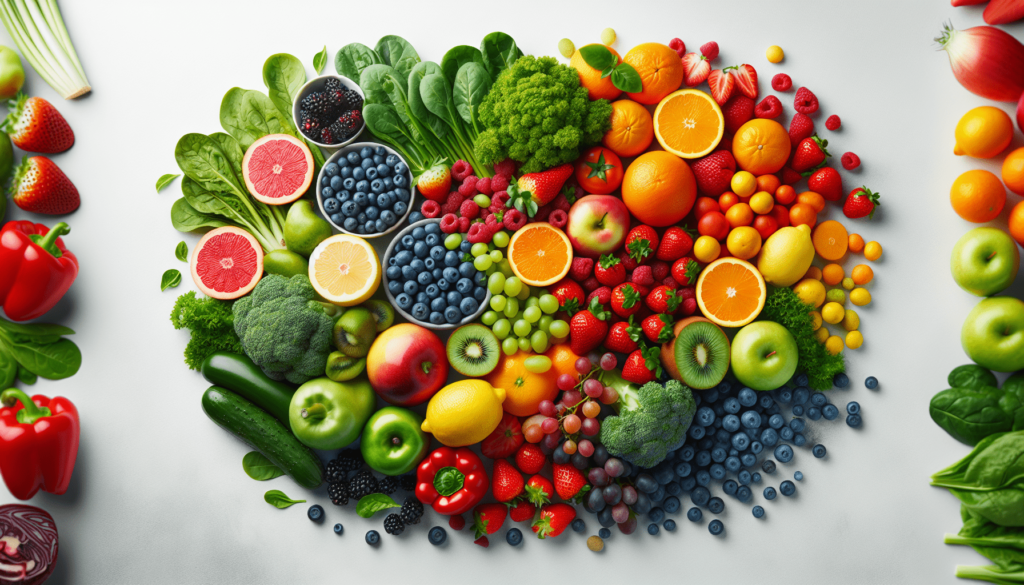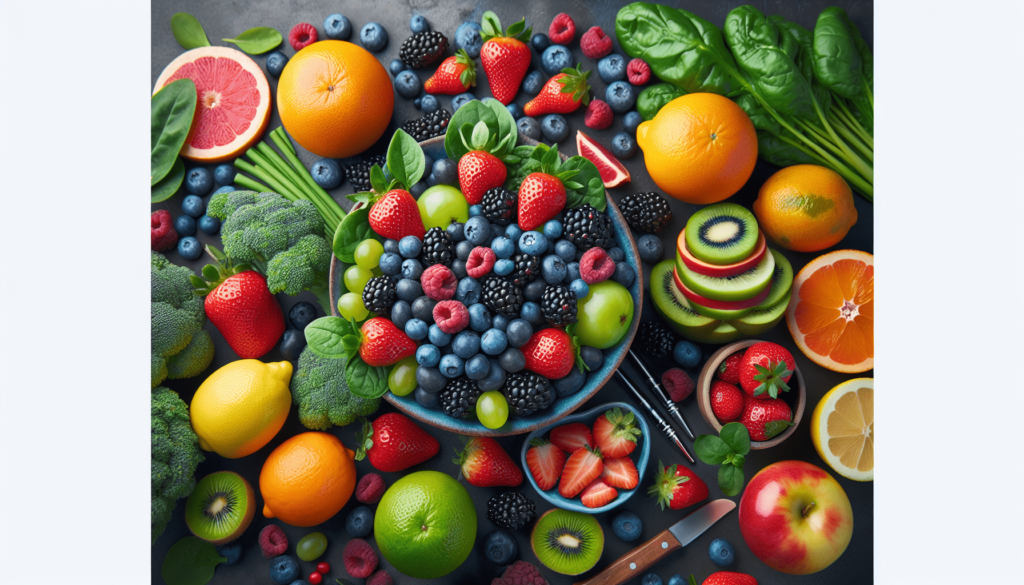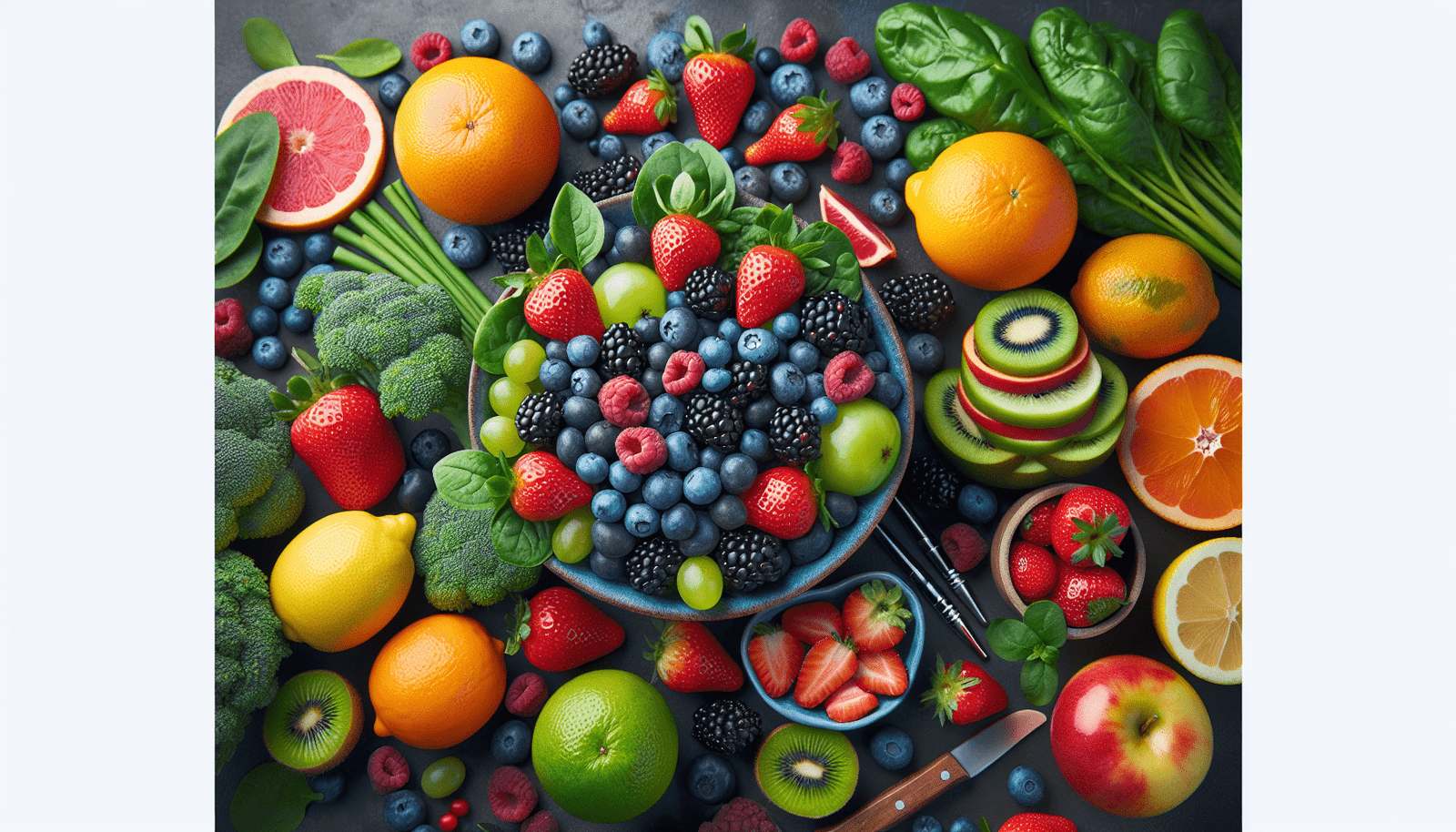Welcome to a helpful article all about the best food and fruits for managing diabetes. If you or a loved one are looking to improve your diet and make healthier choices, this guide will provide you with some great options to incorporate into your daily meals. From leafy greens to berries, you’ll discover a variety of nutrient-rich foods that can help you better manage your blood sugar levels and overall health. So let’s dive in and explore the delicious and beneficial options that can make a positive impact on your diabetes management journey.
What Is The Best Food And Fruits For Diabetes
If you or someone you know has been diagnosed with diabetes, you may be wondering what the best food and fruits are to include in your diet. Making healthy choices when it comes to food is essential for managing diabetes and improving overall health. In this article, we will discuss some of the best food and fruits for diabetes, as well as provide some helpful tips and suggestions for incorporating them into your diet.
Understanding Diabetes and the Role of Diet
Before we delve into the best food and fruits for diabetes, it’s important to understand how diet plays a crucial role in managing the condition. Diabetes is a chronic illness that affects how your body processes glucose, a type of sugar that serves as a primary source of energy. When you have diabetes, your body either doesn’t make enough insulin or can’t effectively use the insulin it does produce. This leads to high levels of glucose in the bloodstream, which can cause a variety of health problems.
Best Food Choices for Diabetes
When it comes to choosing the best food for diabetes, the key is to focus on whole, minimally processed foods that are high in fiber, healthy fats, and lean protein. These types of foods can help regulate blood sugar levels and promote overall health. Some of the best food choices for diabetes include:
Leafy Green Vegetables
Leafy green vegetables such as spinach, kale, and collard greens are excellent choices for individuals with diabetes. They are low in calories and carbohydrates but high in fiber, which can help stabilize blood sugar levels. Additionally, they are packed with essential vitamins and minerals that support overall health.
Whole Grains
Whole grains such as brown rice, quinoa, and whole wheat bread are rich in fiber and nutrients. They are digested more slowly than refined grains, which can help prevent spikes in blood sugar levels. Incorporating whole grains into your diet can help you feel fuller for longer and provide sustained energy throughout the day.
Lean Protein Sources
Lean protein sources like skinless chicken, turkey, fish, and tofu are essential for individuals with diabetes. Protein helps stabilize blood sugar levels and promotes satiety, making it an important component of a balanced meal. Be sure to choose lean cuts of meat and opt for baking, grilling, or steaming over frying to keep the dish healthy.
Healthy Fats
Healthy fats found in avocados, nuts, seeds, and olive oil play a crucial role in managing diabetes. These fats help improve insulin sensitivity and reduce inflammation in the body. Incorporating healthy fats into your diet can help lower your risk of heart disease and other complications associated with diabetes.
Berries
Berries such as strawberries, blueberries, and raspberries are low in sugar and high in antioxidants, making them an excellent choice for individuals with diabetes. Antioxidants help reduce inflammation and protect cells from damage caused by unstable molecules known as free radicals. Adding berries to your diet can help improve blood sugar control and support overall health.
Beans and Legumes
Beans and legumes like black beans, lentils, and chickpeas are rich in fiber, protein, and complex carbohydrates. They have a low glycemic index, which means they are digested slowly and have less of an impact on blood sugar levels. Including beans and legumes in your meals can help stabilize blood sugar levels and promote satiety.

Best Fruit Choices for Diabetes
While fruits contain natural sugars, some are better choices for individuals with diabetes than others. When choosing fruits, it’s important to opt for varieties that are low in sugar and high in fiber. Some of the best fruit choices for diabetes include:
Apples
Apples are a good source of fiber and vitamin C, making them an excellent choice for individuals with diabetes. The fiber in apples helps slow down the absorption of sugar, preventing spikes in blood glucose levels. Apples are also low in calories and can be enjoyed as a healthy snack or added to salads and oatmeal.
Oranges
Oranges are rich in vitamin C and fiber, making them a nutritious option for individuals with diabetes. The fiber in oranges helps regulate blood sugar levels and promote digestive health. Oranges are also a good source of antioxidants, which can help reduce inflammation and protect against chronic diseases.
Kiwi
Kiwi is a low-calorie fruit that is packed with vitamins C and K, as well as fiber. The fiber in kiwi helps regulate blood sugar levels and promote gut health. Kiwi also contains antioxidants that support immune function and reduce inflammation in the body.
Berries
As mentioned earlier, berries are a great choice for individuals with diabetes due to their low sugar content and high antioxidant levels. Berries like strawberries, blueberries, and raspberries are not only delicious but also provide essential vitamins and minerals that support overall health. Enjoy berries on their own, in smoothies, or on top of yogurt for a healthy and satisfying treat.
Peaches
Peaches are a juicy and sweet fruit that can be enjoyed by individuals with diabetes in moderation. They are low in calories and rich in vitamins A and C. Peaches also contain fiber, which can help regulate blood sugar levels and promote digestive health. Enjoy peaches on their own or add them to salads and desserts for a tasty and nutritious treat.
General Tips for Managing Diabetes Through Diet
In addition to incorporating the best food and fruits for diabetes into your diet, there are some general tips that can help you better manage the condition:
Monitor Your Carbohydrate Intake
Carbohydrates have the most significant impact on blood sugar levels, so it’s essential to monitor your intake and choose the right types of carbs. Opt for whole grains, fruits, vegetables, and legumes over refined grains and sugary foods to help regulate blood sugar levels.
Practice Portion Control
Controlling portion sizes is crucial for managing diabetes and preventing spikes in blood sugar levels. Use measuring cups, food scales, or visual cues to help you gauge appropriate portion sizes and avoid overeating.
Stay Hydrated
Drinking an adequate amount of water throughout the day is essential for individuals with diabetes. Water helps regulate blood sugar levels, promote digestion, and support overall health. Aim to drink at least 8 cups of water per day and more if you are physically active.
Limit Processed Foods
Processed foods are often high in unhealthy fats, sugar, and salt, all of which can have a negative impact on blood sugar levels. Opt for whole, minimally processed foods whenever possible to promote better health and well-being.
Seek Professional Guidance
Managing diabetes can be complex, so it’s essential to work with a healthcare provider or registered dietitian to develop a personalized meal plan. They can help you make informed decisions about food choices, portion sizes, and meal timing to ensure optimal blood sugar control and overall health.

Conclusion
Making healthy food choices is essential for managing diabetes and promoting overall well-being. By incorporating the best food and fruits for diabetes into your diet and following some general tips for managing the condition, you can improve blood sugar control, reduce the risk of complications, and enhance your quality of life. Remember that everyone’s dietary needs are unique, so it’s essential to work with a healthcare provider to develop a personalized plan that meets your individual needs and preferences. By taking steps to prioritize your health and well-being, you can better manage diabetes and live a fulfilling and active life.


